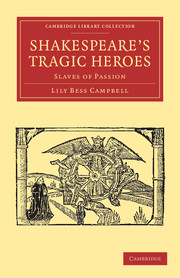CHAPTER SEVEN
The Anatomy of Melancholy.
Published online by Cambridge University Press: 07 September 2010
Summary
Just as the relation of mind and body is acknowledged to be very close, so is the relation between the passions and the humours. Wright says of his work in its opening chapter:
As this Treatise affordeth great riches to the Physitian of the soule, so it importeth much the Physitian of the bodie, for that there is no Passion very vehement, but that it alters extreamely some of the four humors of the bodie; and all Physitians commonly agree, that among diverse other extrinsecall causes of diseases, one, and not the least, is, the excesse of some inordinate Passion.
How this happens he finds it difficult to explain, but he concludes
that the spirites and humors wait upon the Passions, as their Lords and Maisters.
Remembering that in general the liver was the instrument of nourishment for the body, the heart the seat of the spirits and hence of passions and affections, the brain the instrument of sense and motion, it will be seen that there are two ways in which the passions could be and were considered as affecting body and mind. In the first place, those who thought of the elements as the ultimate basis of all things chose to regard the passions as in themselves having affinity with the elements.
- Type
- Chapter
- Information
- Shakespeare's Tragic HeroesSlaves of Passion, pp. 73 - 78Publisher: Cambridge University PressPrint publication year: 2009First published in: 1930

